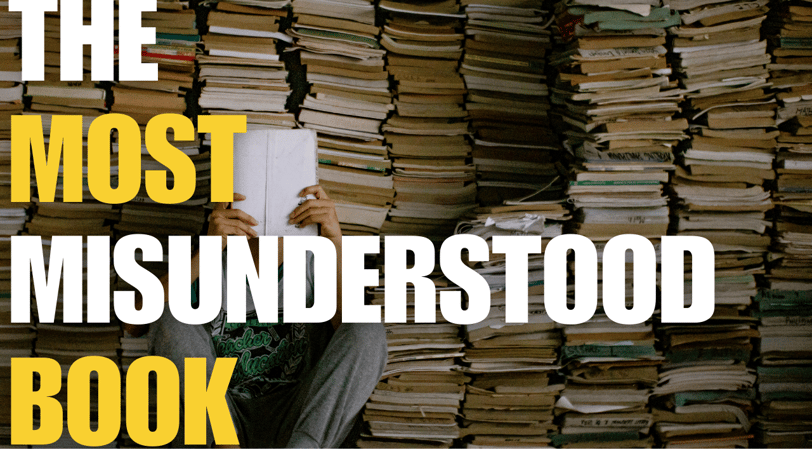The Most Misunderstood Book
11/24/20233 min read


Title: Decoding the Enigma: The Bible - Often Misunderstood
The Bible, the world's most widely read book, holds within its pages a wealth of wisdom and guidance. Unfortunately, it is also one of the most misunderstood texts. Throughout history, misinterpretations have led to the birth of skewed beliefs, divisions, and even harmful practices under the guise of religious righteousness. In this article, we will delve into the intricate nature of the Bible, shed light on the consequences of misunderstanding, and explore the transformative power it possesses when approached with nuance and understanding.
Unraveling the Labyrinth:
The Bible, a labyrinth of texts, demands precise reading and interpretation. Translated into thousands of languages, each translation adds another layer of complexity. Sadly, the subtle nuances of the original text often vanish, leading to a myriad of interpretations. Misunderstanding the context, symbolism, and underlying message can create discord between the original intent and present interpretation. Thus, misinterpretations can birth divisions and hinder the true unity intended by the Bible.
The Tangible Fallout:
The consequences of misunderstanding the Bible are tangible and far-reaching. Pain, hurt, confusion, guilt, and inner turmoil are just a few of the effects. However, when rightly understood, the Bible has the power to mend bridges, heal wounds, and guide us in this complex world. It is crucial to acknowledge that misinterpretations can cause more harm than good. With a nuanced approach, we can harness the transformative power of the Bible and truly understand its profound teachings.
Historical Upheavals and Contemporary Concerns:
Historical events like the Crusades and the Salem Witch Trials serve as reminders of the havoc caused by misinterpretations. Centuries of conflict, bloodshed, fear, and paranoia were fueled by distorted interpretations of the Bible. Similarly, in our present world, misinterpretations perpetuate division and discord, leading to prejudice, discrimination, and even violence. It is vital to distinguish these misinterpretations from the true essence of the Bible, which promotes love, understanding, and unity.
The Ripple Effect on Individuals and Society:
Misinterpretations inflict deep emotional turmoil on individuals, alienating them and causing profound isolation and disillusionment with faith. Additionally, misinterpretations become a tool for justifying prejudice and discrimination against certain groups, reinforcing harmful stereotypes. However, it is essential to recognize that these misrepresentations do not reflect the overall teachings of the Bible. They are distortions that stray from its original message of compassion, kindness, and love.
A Journey Towards Understanding:
The pain of misunderstanding the Bible runs deep, affecting the faith of countless individuals. Young men wrestling with verses that seem to condemn their very identities and women seeking solace but encountering belittling words - these are real narratives of real people. Misinterpretations distort the image of a loving and merciful Creator, leading to unworthiness, guilt, and spiritual estrangement.
Seeking True Comprehension:
We must remember that the Bible, like any text, is subject to interpretation influenced by various factors such as cultural context, personal biases, societal norms, and even translation errors. Genuine understanding requires a quest for truth, transcending literal readings, and seeking the heart of God's message. We must foster unity, compassion, and love, promoting these values through our actions and showing a correct representation of the Bible to the world.
Transforming Misinterpretations into Understanding:
Imagine a world where the Bible is correctly understood, free from misconceptions and misinterpretations. Individuals would experience personal peace and fulfillment, and communities would be united through a shared understanding of the Bible's true message. Such societies would flourish, prioritizing justice, mercy, and humility, and upholding the dignity of every individual. To achieve this, we must challenge our preconceptions, engage in open communication, and remain receptive to the transforming power of understanding.
Conclusion:
In this shared journey, each individual plays a role in shaping a world of unity, understanding, and love. Through listening, honest communication, and a commitment to seeking correct interpretations, we can transform the Bible from a source of division into a beacon of unity and compassion. Let us embark on this extraordinary journey, for in understanding the true spirit of the Bible, we have the power to shape a better world.
